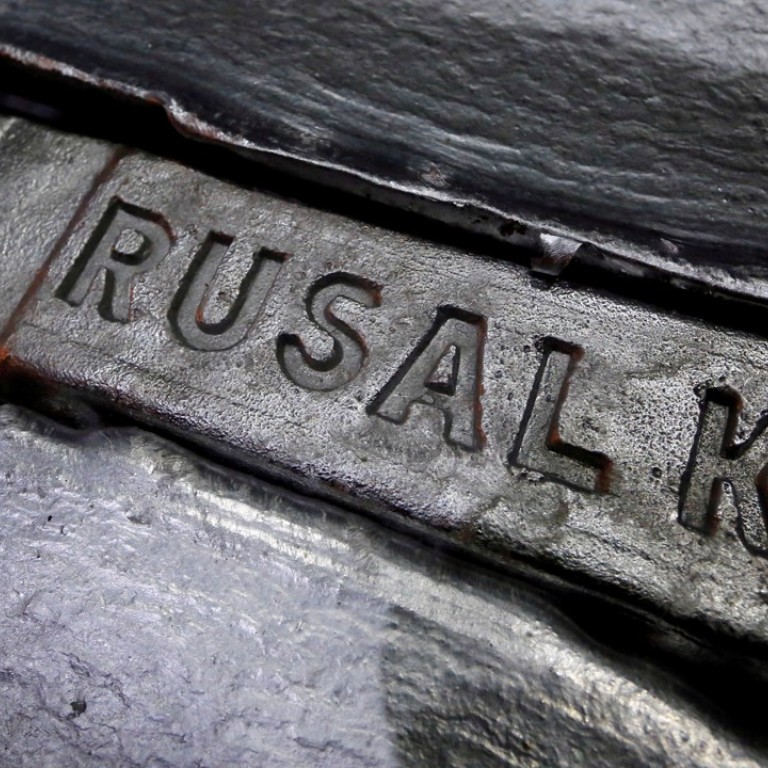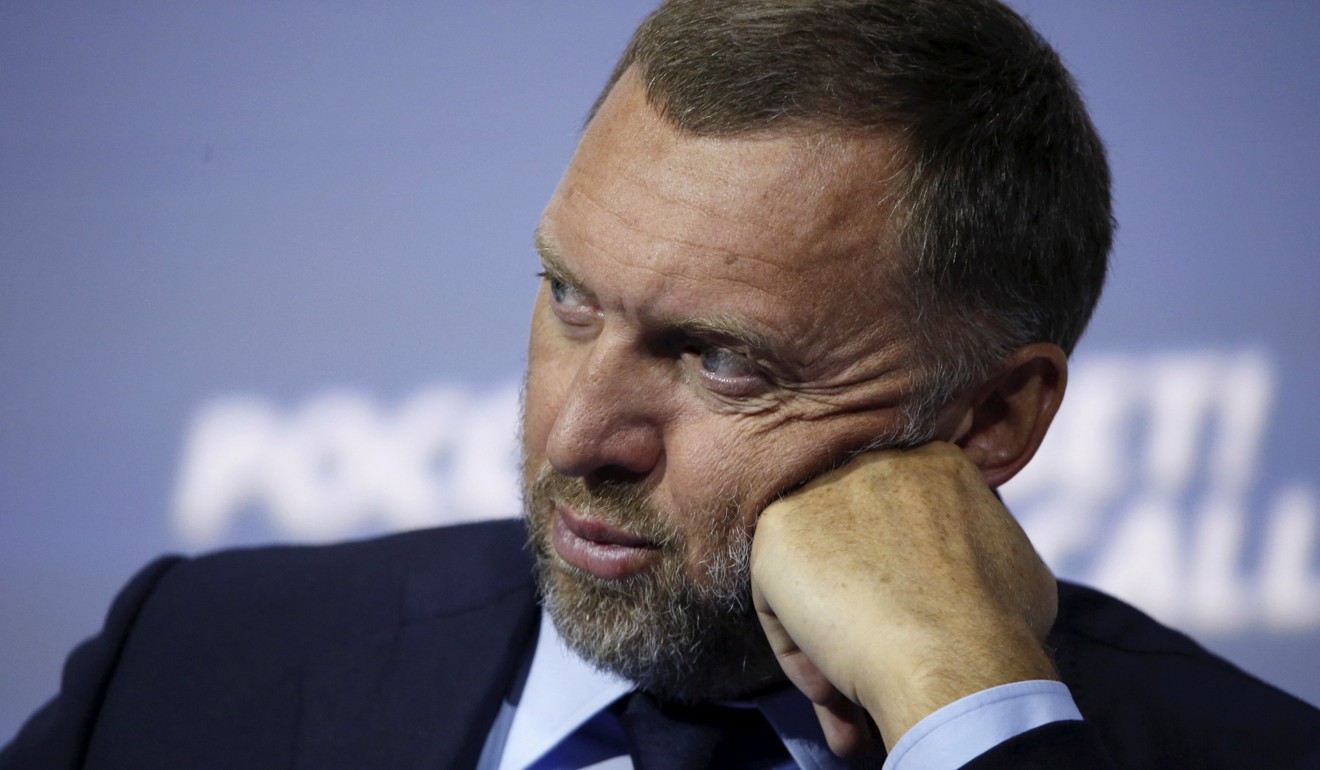
Sanctions-hit Rusal soars 9 per cent in Hong Kong after Russian oligarch Deripaska cedes control
Aluminium prices surged last month amid fears the US sanctions will hit the global supply chain, but prices have since retreated after the US softened its stance on the penalties
Rusal, which produces about 7 per cent of the world’s aluminium, saw its Hong Kong-listed shares surge as much as 9 per cent on Monday, after Russian billionaire Oleg Deripaska said he would cede control of the firm and “end his influence” on the board in a bid to avoid US sanctions.
The stock closed at 5.4 per cent at HK$1.94. It reached an intraday high of HK$2.01, up 9.2 per cent from the previous close of HK$1.84.
The surge came after Rusal announced before market open that En+, which owns Rusal, had endorsed a plan to allow Deripaska to end his control over En+ to let the company escape US penalties.

“The plan [by En+] seeks to both reduce Mr Deripaska’s shareholding in En+ to below 50 per cent and to end his influence over the board of directors of En+ through the appointment of a majority of independent directors,” Rusal said.
Deripaska has also resigned as a director of En+ and given an undertaking not to seek re-election as a director of Rusal at the forthcoming annual general meeting.
Rusal also said it was highly likely the impact of US sanctions may be “materially adverse” to its business and prospects.
Rusal shares had plunged as much as 70 per cent after the US announced on April 6 its toughest sanctions on a listed Russian company in recent years.
Washington gave buyers a deadline of 30 days to exit dealings with Rusal, while also imposing asset freezes and financial sanctions on a number of Russian oligarchs and their companies, as well as senior Russian government officials.
The penalties were aimed at punishing Russia for a range of “worldwide malign activity, including continuing to occupy Crimea and instigate violence in eastern Ukraine, supplying the Assad regime with material and weaponry as they bomb their own civilians, attempting to subvert Western democracies, and malicious cyber activities,” the US Treasury said.
However, the US softened its stance considerably on April 23.
The US Treasury said it would consider lifting sanctions on Rusal if Deripaska ceded control, while extending the deadline for companies to exit dealings with Rusal by almost five months, to October 23 this year.
“Rusal has felt the impact of US sanctions because of its entanglement with Oleg Deripaska, but the US government is not targeting the hardworking people who depend on Rusal and its subsidiaries,” Steven Mnuchin, the US Treasury Secretary, said in a statement on April 23.
The initial announcement of the sanctions in April against Rusal had driven up aluminium prices amid fears that the global market could face supply shortages.
“It is not the first time that the Trump administration has shown a willingness to back down on its threats in return for relatively modest concessions,” said Simona Gambarini, a commodities economist for Capital Economics, in a recent note.
On April 19, aluminium prices on the London Metal Exchange surged to US$2,718 per tonne, the highest level in almost seven years. Global alumina prices had also spiked as much as 80 per cent.
But prices fell after a change in tone on April 23, with aluminium posting its biggest one-day drop in eight years that day. It has since continued its retreat, closing at US$2,270 on Friday, down 16 per cent from its recent peak in April.
Gambarini said she expected the price of aluminium to fall to US$2,000 per tonne by the end of this year and drop even further if Rusal was entirely exempted from the US sanctions.

